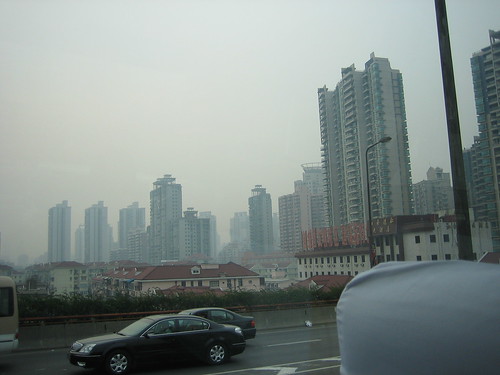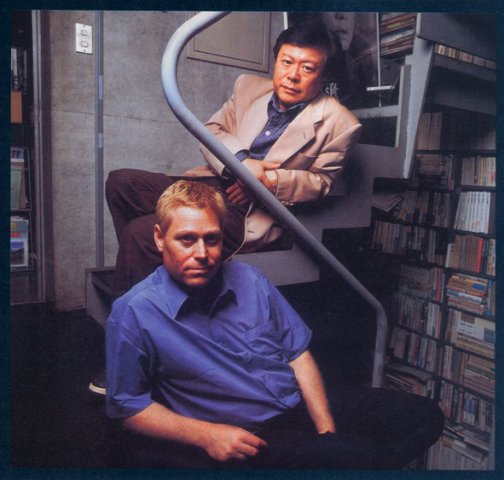The Foreign Relations of the United States series is the official documentary historical record of major U.S. foreign policy decisions that have been declassified and edited for publication. The series is produced by the State Department’s Office of the Historian and printed volumes are available from the Government Printing Office.
While perusing the table of contents of a random volume of this wonderful collection I found the following very fascinating exchange. They are of course all fascinating, but perhaps since my own little sister is adopted (although not from China) I found this one particularly special. Apologies for the lousy formatted text, but it is the product of un-edited OCR software. I have corrected a few obvious errors, but making it all pretty is a bit much.
CITIZENSHIP AND RIGHT OF ADMISSION TO THE UNITED STATES
OP A CHINESE ADOPTED BY AN AMERICAN CITIZEN.
Minister Rockhill to the Secretary of State.
No. 389.] AMERICAN LEGATION,
Peking, September 6, 1906.
SIR: I have the honor to enclose herewith copies of my correspondence with the American consul-general at Hankow regarding the adoption by an American of a Chinese baby girl. My opinion is asked as to whether the child may, through adoption, become an American citizen, and be taken to the United States and brought up as any ordinary adopted child of American extraction.
I have expressed my belief that under the present laws a Chinese infant
can not thus become an American citizen, but that possibly the child could
be taken to the United States and there educated under the privileges pertaining to the exempt classes of Chinese persons.
I have the honor to beg that the department will express its opinion as
to my course of action.
I have, etc., W. W. ROCKHILL.
[Inclosure 1.J
Mr. Martin to Mr. Rockhill
HANKOW, August 21, 1906.
SIR: I have the honor to inclose herein the copy of a letter just received
from Miss Carrie M. Ericksen, together with a copy of my answer thereto.
Will you be so kind as to express your opinion on the subject, through me,
to her, that she may be the better satisfied.
WM. MARTIN.
[Subinclosure 1.]
Miss Ericksen to Mr. Martin.
AUGUST 15, 1906.
DEAR MR. MARTIN: I am writing these few lines to ask a favor of you. We
have under our care a Chinese baby girl who was thrown out to die by her
parents and we want to know if it is possible to take her with us to the
United States next spring. If so, under what conditions. I wish to adopt
her and have her brought up in my home as an American citizen. Will you let
me hear from you at your earliest convenience, and oblige, CHINA. 289
[Subinclosure 2.]
Mr. Martin to Miss Ericlcsen.
Miss CARRIE M. ERICKSEN,
Sin Tsai Hsien, Honan:
I am in receipt of your letter dated August 15, 1906, and in reply would
say, that as to your asking whether you can take a baby Chinese girl into
the United States, you having adopted her, as far as 1 know it would not
be permitted. I will, however, communicate with the American minister at
Peking on the subject, and on receiving his answer will forward it to you.
WILLIAM MARTIN.
[Inclosure 2.]
Mr. Rockhill to Mr. Martin.
PEKING, September 6, 1906.
SIR: I have to acknowledge the receipt of your No. 218 of August 21, inclosing copies of your correspondence with Miss Carrie M. Ericksen regarding her proposed adoption of a Chinese baby girl as an American citizen and asking my opinion on the subject.
In reply I beg to say that I can find no record in this legation of a similar
case, but I am of the opinion that under the present laws the child could
not be declared a citizen of the United States through adoption. It might
be possible, however, for her to be brought to America for the purpose of
education under the laws governing persons of exempt classes, but that is
not the point upon which Miss Ericksen desires information.
I have submitted the case to the Department of State, and on receiving a
reply therefrom will immediately inform you of its contents.
W. W. ROCKHILL.
The Acting Secretary of State to Minister Rockhill.
No. 209.] DEPARTMENT OF STATE,
Washington, November ~, 1906.
SIR: In answer to your dispatch, No. 389, of September 6 last, asking whether
a Chinese child adopted by an American citizen in China may be admitted to
the United States for the purpose of being educated, I inclose herewith,
for your information, a copy of a letter from the Acting Secretary of Commerce
and Labor, stating that a~ child born of Chinese parents in China can not
be permitted to enter the United States as an American citizen because of
its adoption by a temporary resident of China who is a citizen of the United
States, and that you are correct in holding that the persons interested in
the child should adopt the usual procedure to insure its admission to this
country, namely, the procurement of a certificate under the provisions of
section 6 of the act of July 5, 1884.
I am, etc., ROBERT BACON.


 On Nov 20, I’m going to see a lecture by Alex Kerr (pictured, bottom), a businessman in Japan and Thailand and author of
On Nov 20, I’m going to see a lecture by Alex Kerr (pictured, bottom), a businessman in Japan and Thailand and author of 




